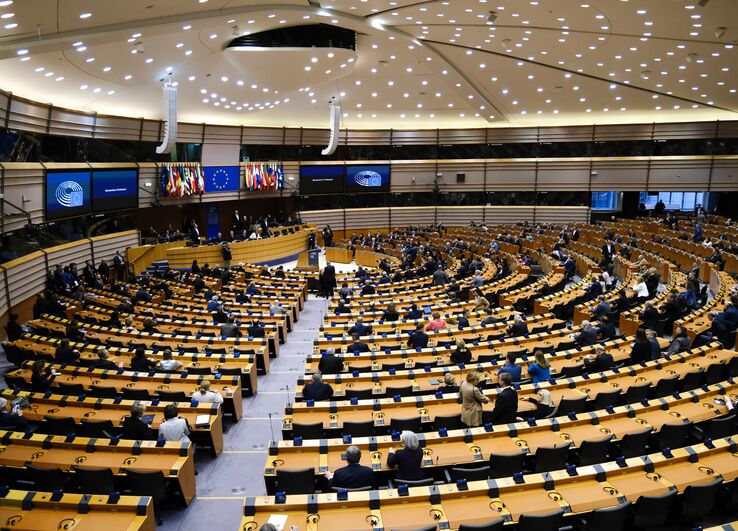Another win in our business and human rights work, as the EU Parliament moves one step closer to stronger laws on business and human rights. Our Business and Human Rights colleagues, Sian Lea and Andriana Loredan, talk us through what this success means in practice.
June 2023

We have achieved a major milestone in our advocacy for stronger corporate accountability laws around the world. On 1 June 2023, after months of intense negotiations, the European Parliament approved its official position on the Corporate Sustainability Due Diligence Directive (CSDDD). We have been heavily involved in advocating for this law since 2017, meeting with policymakers, influencing businesses to engage on the issue and bringing the voices of our global partners to Brussels. We are happy to see that many of the aspects that we, and our civil society colleagues, have been pushing for have been included in the European Parliament’s proposed text for the law. This brings us one step closer to a comprehensive due diligence law, and it’s an important moment to celebrate.
How are EU laws created?
In order for the EU to create laws, there are four key steps that must take place. The Commission puts out an initial proposal, the Council of the European Union, which represents member state governments, puts out its amendments, as does the European Parliament. The final step is a trilogue between all three entities to land on a text that all three agree on.
For CSDDD, we are now in this final trilogue stage and although we don’t know how long it will take, we estimate we could have a final law by the beginning of 2024. After that member states will have two years to embed the law in their national legal systems.
What do we think of the European Parliament’s position?
The recently voted on text contains the European Parliament’s amendments to the European Commission’s proposal for mandatory human rights and environmental due diligence, originally published in February 2022. We are pleased with the improvements made to the Commission’s original proposal. While this isn’t the final law, it sets up a solid foundation for negotiations in this final stage of debates, which hopefully means these improvements will be safeguarded. However, there are some remaining loopholes which cause serious concern for the final law’s ability to hold companies accountable for forced labour. We must work to ensure these are addressed in the final Directive.
We have analysed the Parliament’s text and have outlined some key takeaways based on what we had originally advocated for. In summary, we were pleased with a number of inclusions:
- there is a shift in focus to a risk-based approach to due diligence,
- the role of ineffective due diligence tools, like third-party audits, has been reduced (albeit not eliminated),
- weight is given to addressing irresponsible purchasing practices,
- and significantly more responsibility is given to businesses to engage affected stakeholders, to remediate harm and to establish effective grievance mechanisms.

CHANGE LIVES
Help resist modern slavery and restore freedom for every person whose freedom is being withheld
Unfortunately, it’s not all good news
Despite this being a really important step, we do have some concerns about the Parliament’s proposal as well. One of the greatest threats for the legislation’s effectiveness is that it only reaches some businesses. Although the Parliament lowered the threshold of companies that would have to respect the legislation, no small and medium enterprises (SMEs) would fall within its scope. To give an example of why this is concerning, 99% of companies within the fashion industry, which is at high risk of forced labour, are SMEs.
Another important loophole is about accessibility of justice for those harmed by human rights abuses. A large barrier to justice is that victims would have to bear the burden of proof in courts. This means that under-resourced, exploited workers would be responsible for proving that a company has not performed their due diligence correctly. This is the case even if most of the relevant information is in the hands of the company – which also has far more resource at its disposal. We are pushing for a reversal of this burden of proof, advocating instead that the onus should be on the company to prove that it had done the appropriate due diligence – rather than the worker who has already been harmed.
What next?
As final discussions between the European Parliament, European Commission and Council of the European Union start, we are working alongside civil society partners to plan our continued advocacy, so that we can make sure the best and strongest version of this proposal comes into law. We will do this by working closely with fellow NGOs, progressive businesses, policymakers and our global partners to ensure gaps are addressed and environmental standards and human rights are safeguarded. For those who have supported us and wrote to their MEPs, we thank you. We will continue to call on your support and update you as things progress.